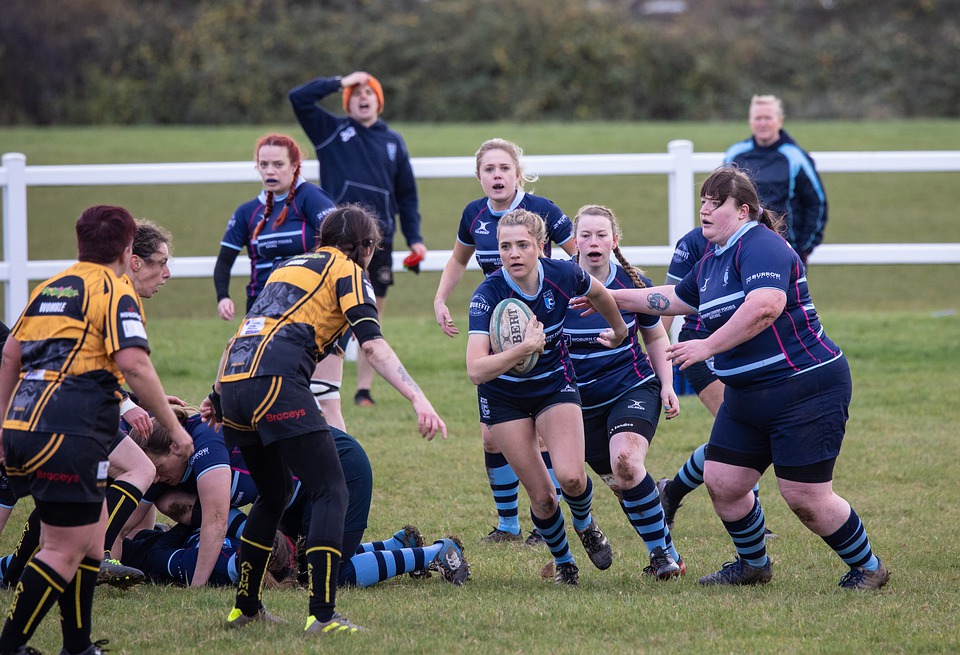What You Need To Know About Domestic Violence
The post is developed in partnership with BetterHelp.
**Content Warning: This article discusses domestic violence and abuse. If you are currently experiencing domestic violence, please call the National Domestic Violence Hotline at 1-800-799-SAFE (7233) for help and resources.**
In the past, there have been scandals associated with rugby players and domestic violence. Rugby can be a physical and violent sport, and unfortunately, some players don’t leave their actions to just the playing field. Though it is not a widespread issue in rugby leagues, it is still essential to be educated on domestic violence and its signs.
Domestic violence can affect any person of any gender or age. Therefore, it’s important to understand it so you can identify if any of your loved ones are experiencing this awful situation. Read on to learn more about domestic violence and how you can find help for yourself or someone who is experiencing it.
What Is Domestic Violence?
Domestic violence is abuse that occurs between two people in a home. Though the term usually refers to abuse between two partners, domestic violence can also include parent-child abuse or any other form of abuse between family members or two people who live together.
There are quite a few misconceptions and biases around domestic violence that should be addressed. For example, most people believe that it can only happen to women and that men are never targets of abuse. The truth is that it can happen to anyone of any gender, sexual orientation, race, or age and can also be perpetrated by anyone as well.
Furthermore, some people believe that domestic violence is a family matter and should be sorted out solely within the family. However, domestic violence puts family members in danger and, therefore, may require the members to leave home or seek a professional for help. No one should feel forced to put up with the situation simply because it is a “family matter.”
What Does Domestic Violence Look Like?
Though most people primarily associate domestic violence with physical abuse, the truth is that this is only one form that it takes. Abuse is any action that is used to harm, demean, or control another person in some way. Though some people believe that other forms of abuse are “not as serious,” nothing could be further from the truth. All forms of abuse are traumatic and can cause long-lasting distress and harm to the abused person.
An abuser will do anything and everything to keep their target in control. Therefore, they may change their tactics to whatever seems to work best. So some may resort to physical violence, while others will find ways to isolate their target and take away their power.
Some of the many forms of domestic violence include:
● Physical violence
● Emotional abuse
● Verbal abuse
● Financial abuse and control
● Stalking
● Isolation
● Sexual abuse
How To Get Help
If you are experiencing domestic violence, know that resources and help are available. The best thing you can do is contact the National Domestic Violence Hotline at 1-800-799-SAFE (7233). They can provide you with guidance and resources to help you leave your situation and find safety. Even if you yourself are not experiencing domestic violence, you can still call the hotline for guidance on how to help someone who is.
You may also want to get the support of a loved one, friend, or therapist. Having a support network may help you heal and stay safe while you are transitioning out of this terrifying experience.
Whatever you decide to do, please know that you deserve to get help and leave your situation. No matter what has occurred, you do not deserve abuse. Please reach out to the hotline or someone else for help as soon as it is safe to do so.
Final Thoughts On Domestic Violence
Domestic violence occurs in sports circles and the general public alike. Though you may believe it can never happen in your social circle, the truth is that domestic violence occurs everywhere. And since domestic violence doesn’t always leave physical marks, it may not always be obvious right away if a loved one is in an abusive situation. Hopefully, this article gave you a good introduction to domestic violence, so you have a better idea of what to look for and how to help. For more information and articles on domestic violence, head on over to BetterHelp.




